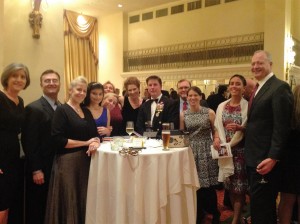 “I couldn’t sleep at night. I kept recalling the images of the children wasting away,” recalls Randi Thompson. The communications executive had taken a trip to Kazakhstan in 1993. She had visited an orphanage for children between 7 and 15 and was shocked by what she encountered. “The images haunt me to this day.”
“I couldn’t sleep at night. I kept recalling the images of the children wasting away,” recalls Randi Thompson. The communications executive had taken a trip to Kazakhstan in 1993. She had visited an orphanage for children between 7 and 15 and was shocked by what she encountered. “The images haunt me to this day.”
Terry Baugh, Thompson’s business partner had a similar experience on a trip to Russia. She had travelled to the country to visit an orphanage as part of the process for adopting her first child. The horrid conditions of the children in these orphanages inspired the two to found Kidsave.
Out of the box
“Having a family is all I wanted,” says 16 year-old Francy Egan. “I had given up hope since the only kids in the orphanage that were adopted were babies.”
Francy Egan had been removed from her biological mother at 8 because of the poor living conditions. She had bounced from one foster family to another. She had also moved from one institution to the next. Like many older children, chances of being adopted grew slimmer the older she got.
It is nearly impossible for older children to find homes. “Many people are able to adopt older children only after meeting them,” says Thompson. “However, they often never get to meet these children.” This inspired the out-of-the-box approach by Kidsave.
Kidsave began by partnering with orphanages in Russia (and later Columbia) to identify children that want to be adopted. The children are then brought to America on a summer trip. They spend time with families in the US interested in adopting the children. However, the children are not informed of this. They return to their countries after the trip and if the families are interested in adopting them, they are informed.
“Children are told that it is a summer trip to prevent them from feeling let down,” says Thompson. “Families are however, allowed to communicate with the children even after they return.”
Families that are interested in adopting the children can communicate this to the child upon their return. The adoption process can take anything up to 15 months at a cost of between $25,000 and $35,000.
The program has grown and is now partnering with various other organizations and the governments of Sierra Leone, Russia and Colombia to find homes for orphans with the residents living in these countries.
A happy ending
Francy finally got her family through the program. She was adopted by Mark and Racheal Quinn Egan when she was 13 years old. More than 15,000 other children have also found their forever homes through the organization.
